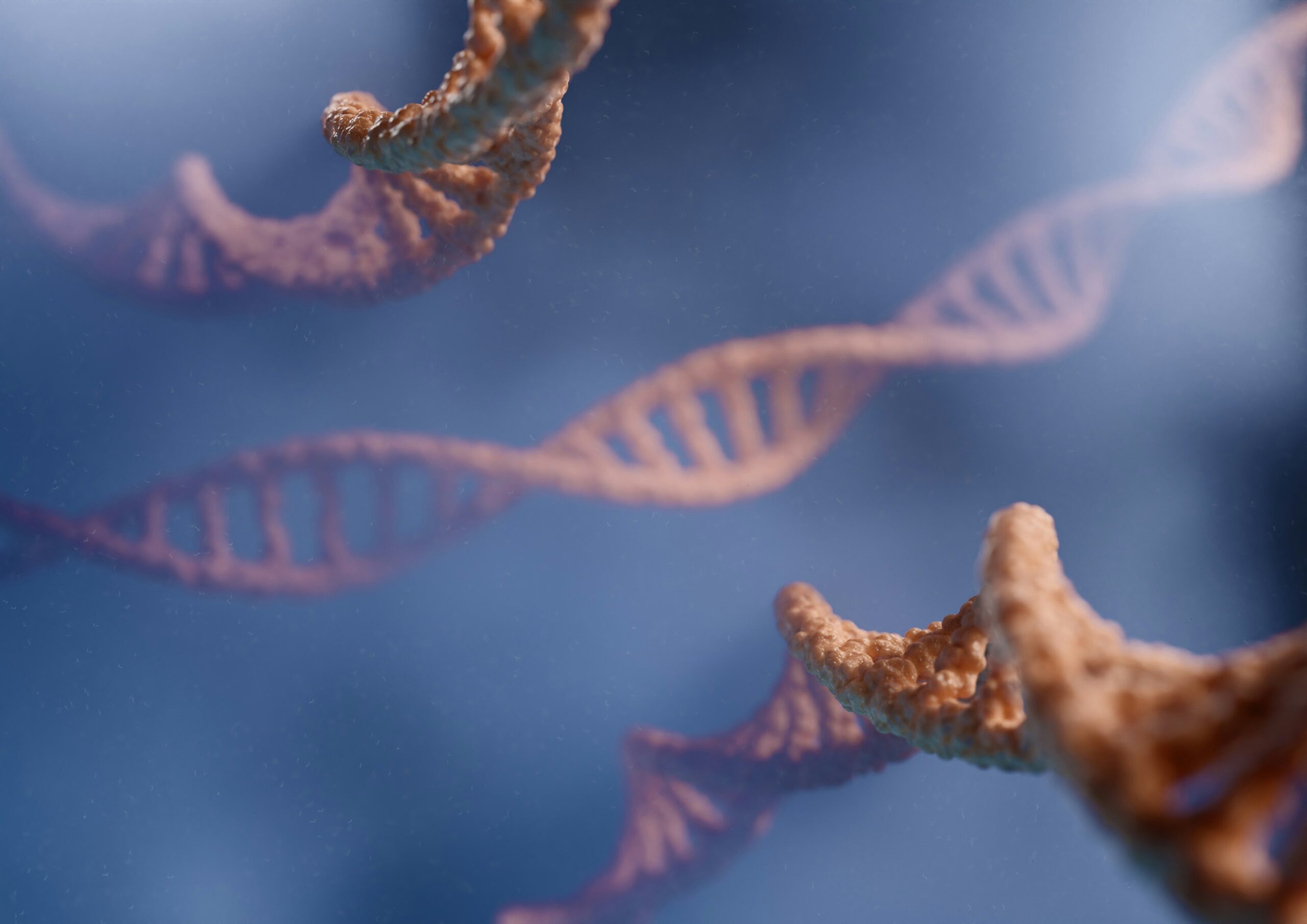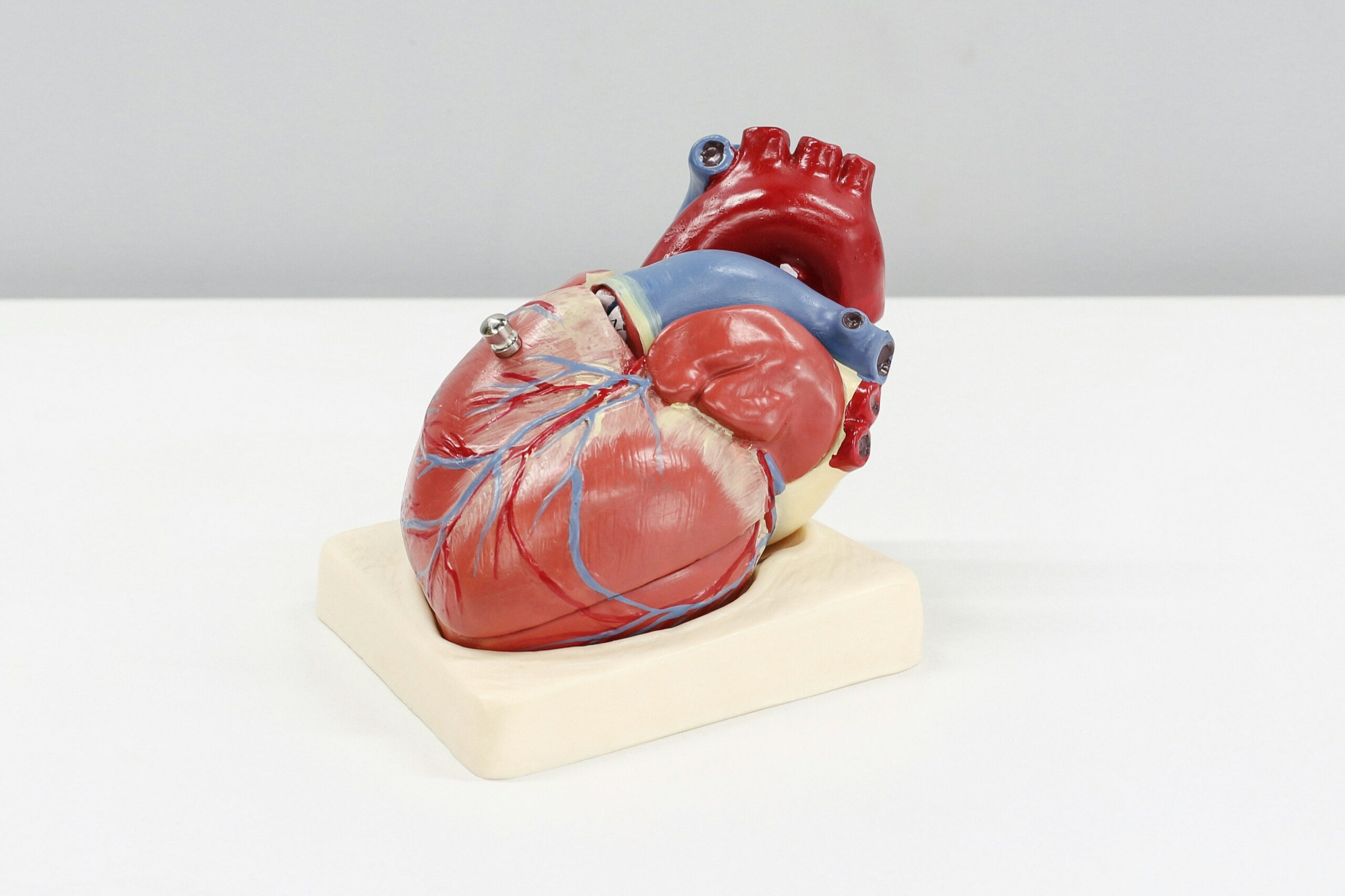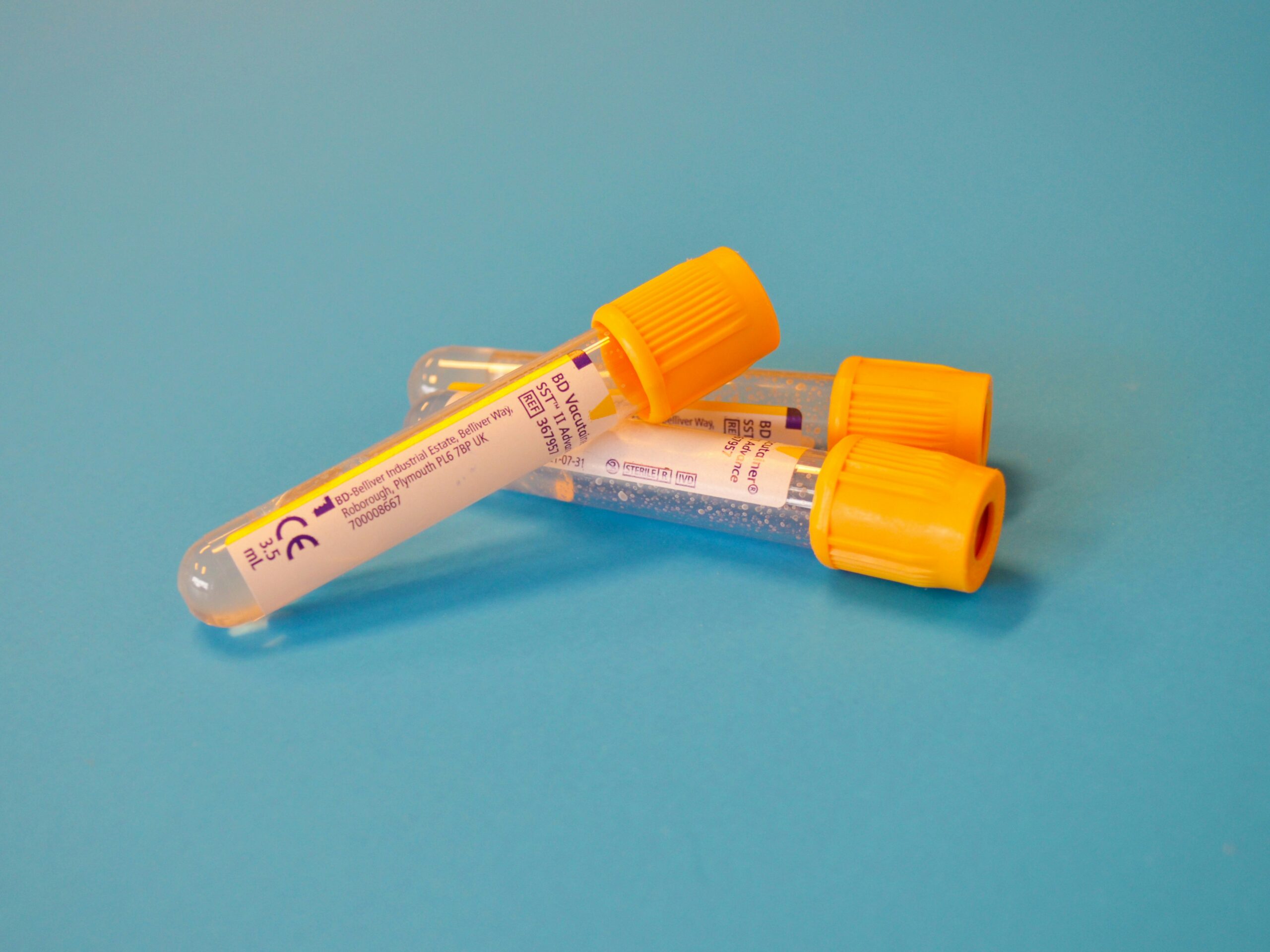High triglycerides are high plasma levels of simple lipids. Triglycerides have essential functions in the human body, which include providing energy. These chemicals can be synthesized in the body or supplied with the diet.
Triglycerides supplied with food are absorbed in the small intestine and project to muscles and different blood areas. The body derives energy from carbohydrates and fats, while the remaining power is converted into triglycerides, which accumulate in adipose tissue. The triglycerides are released into the blood, where the body needs more energy. However, the liver and adipose tissue are the primary sites for producing these chemicals in the human body. Triglycerides are then transported into the body's tissues by cholesterol.
Large amounts of these elements in the human body do not usually cause acute symptoms, but high levels pose a risk and can lead to health damage. Persistently high levels of triglycerides increase the risk of cardiovascular disease. Checking whether triglyceride levels are normal is possible with diagnostic tests. When these concentrations are outside safe levels, appropriate treatment should be implemented to protect against the complications of high triglycerides.

Triglycerides are chemical compounds that perform specific functions in the body. As long as their levels are not out of the norm, triglycerides are not harmful but are used for particular tasks with benefits. Triglycerides are simple lipids synthesized in the liver or absorbed in the intestines. These chemical compounds perform several critical metabolic functions in our body, which include:
Triglycerides are projected into various areas of the body with the blood. Under the influence of lipolysis, triglycerides are converted into free fatty acids. The free fatty acids are then transported to tissues, such as muscles, where they are used for energy. Albumin![]() , a circulating substance in the blood responsible for transporting hormones, fatty acids, and amino acids, is involved in the transport process. In an inadequate kilocalorie supply, triglyceride energy is vital for internal organs and muscles. Different methods, such as severe stress or strenuous exercise, can also exacerbate the degradation of triglycerides.
, a circulating substance in the blood responsible for transporting hormones, fatty acids, and amino acids, is involved in the transport process. In an inadequate kilocalorie supply, triglyceride energy is vital for internal organs and muscles. Different methods, such as severe stress or strenuous exercise, can also exacerbate the degradation of triglycerides.
Triglycerides are also used to store energy deposits in the body and to survive more difficult periods in which there may not be a sufficient calorie supply. Triglycerides accumulate in subcutaneous tissue and fat cells, into which lipoproteins project them. When the body needs energy stores from adipose tissue, the triglycerides release fatty acids from the blood. It allows the human body to store energy in inactive fuel![]() .
.

The lipid profile includes several types of lipids in the blood, including cholesterol and phospholipids. Adequate triglyceride levels are essential for the body to function correctly. In contrast, high triglycerides in the blood are a risk factor for developing numerous diseases.
Guidelines set by specialists state that high triglyceride levels are 200-499 mg/dL![]() , while very high triglycerides are described at levels above 500 mg/dL
, while very high triglycerides are described at levels above 500 mg/dL![]() . For those who score high, it is recommended that appropriate measures are taken to achieve the desired triglyceride level below 150 mg/dL
. For those who score high, it is recommended that appropriate measures are taken to achieve the desired triglyceride level below 150 mg/dL![]() . High triglycerides mainly affect men, but lipid levels can increase with age in both sexes. In children and adolescents, high triglycerides are possible but occur less frequently. Usually, high levels in children and adolescents are the result of diseases such as obesity and diabetes.
. High triglycerides mainly affect men, but lipid levels can increase with age in both sexes. In children and adolescents, high triglycerides are possible but occur less frequently. Usually, high levels in children and adolescents are the result of diseases such as obesity and diabetes.
High triglycerides can have a variety of causes. The concentration of triglycerides in the blood depends on the internal synthesis in the body and the rate of their metabolism, as well as the dietary supply. Therefore, abnormal nutritional habits play a significant role in increasing blood triglycerides. However, other factors having a primary form may cause the development of it. Causes of high triglycerides include:

As triglycerides can be supplied with the diet, an inappropriate diet can cause a harmful increase in triglycerides. It mainly concerns products containing simple sugars and saturated fats. When too much fat, carbohydrates, or alcohol is introduced into the body along with the diet, blood triglyceride levels rise. An excess of products that contain triglycerides can cause various health problems, mainly if an unhealthy diet is carried out over a long-term period. Therefore, eliminating specific products can help lower triglyceride levels.
Another factor that can cause high triglycerides is insufficient physical activity. Regular exercise affects the lipid profile. Physical activity tailored to the individual can lower triglycerides and bad LDL cholesterol and raise blood levels of good HDL cholesterol. In contrast, lack of or insufficient exercise can cause high triglycerides, especially when patients also have an unhealthy diet.
It has been noted that people with diabetes![]() are at risk of high triglycerides. Obesity
are at risk of high triglycerides. Obesity![]() is also a condition that predisposes to abnormal triglyceride results. Other diseases that can increase the risk of excess triglycerides include hypothyroidism, gout, Cushing's syndrome, and others. In these cases, it is necessary to treat the primary disease responsible for the elevated levels.
is also a condition that predisposes to abnormal triglyceride results. Other diseases that can increase the risk of excess triglycerides include hypothyroidism, gout, Cushing's syndrome, and others. In these cases, it is necessary to treat the primary disease responsible for the elevated levels.
Certain medications, including diuretics, estrogens, and glucocorticosteroids, can cause high triglyceride levels. Sometimes, it isn't easy to achieve normal blood triglyceride levels because of the drug therapy used. If the problem of high triglycerides is caused solely by medication, it is worth consulting your doctor, and it may be necessary to change your medication.
Suppose the triglyceride levels in the blood are very high and do not change much even after introducing measures to lower the levels. In that case, it is likely a genetic predisposition or disease. Genetic factors can make the body process fats harder. Such diseases belong to hypertriglyceridemia, hyperchylomicronaemia, or remnant disease.

Hypertriglyceridaemia![]() is the term that describes the pathological condition of high triglyceride levels in the blood. High triglycerides can become a factor that increases the risk of severe medical conditions. High triglycerides do not produce any symptoms, so the condition can only be diagnosed with the help of special diagnostic tests. It is, therefore, essential to regularly monitor the triglyceride levels in the body and respond to elevated values. Hypertriglyceridemia can cause conditions and diseases such as:
is the term that describes the pathological condition of high triglyceride levels in the blood. High triglycerides can become a factor that increases the risk of severe medical conditions. High triglycerides do not produce any symptoms, so the condition can only be diagnosed with the help of special diagnostic tests. It is, therefore, essential to regularly monitor the triglyceride levels in the body and respond to elevated values. Hypertriglyceridemia can cause conditions and diseases such as:
High triglycerides are primarily associated with heart disease. Triglyceride-rich lipoproteins play an essential role in the formation of atherosclerotic plaques![]() —high levels of lipids in the blood cause their deposition in the blood vessel wall. In addition, the processes in which triglycerides are involved have pro-thrombotic and pro-inflammatory effects. It is, therefore, high triglyceride levels that can cause such cardiovascular problems.
—high levels of lipids in the blood cause their deposition in the blood vessel wall. In addition, the processes in which triglycerides are involved have pro-thrombotic and pro-inflammatory effects. It is, therefore, high triglyceride levels that can cause such cardiovascular problems.
There is then a greater risk of hypertension, atherosclerosis, and different consequences such as ischaemic heart disease, heart attack, or stroke. Various symptoms can suggest cardiovascular problems. Patients often experience shortness of breath and dizziness, which can cause syncope. In addition to it, palpitations and feelings of tightness in the chest can signal heart disease. If you notice such symptoms, it is worth having your triglyceride levels checked.

New research has provided a wealth of information on the link between high triglycerides and cognitive impairment. This link is based on the blood-brain barrier![]() mechanism, which involves a two-way transport system that exchanges components between the nervous system and the blood. Vascular changes caused by high triglyceride levels can cause cognitive impairment. In addition to it, scientists have detected triglycerides in human cerebrospinal fluid. Therefore, high triglycerides are likely related to impaired performance in memory, verbal ability, and other cognitive skills. In contrast, mild cognitive impairment is often a stage preceding dementia and different neurodegenerative diseases.
mechanism, which involves a two-way transport system that exchanges components between the nervous system and the blood. Vascular changes caused by high triglyceride levels can cause cognitive impairment. In addition to it, scientists have detected triglycerides in human cerebrospinal fluid. Therefore, high triglycerides are likely related to impaired performance in memory, verbal ability, and other cognitive skills. In contrast, mild cognitive impairment is often a stage preceding dementia and different neurodegenerative diseases.
High triglycerides can also cause non-alcoholic fatty liver disease. The secretion of triglyceride-containing lipoproteins does not control increased lipid accumulation in the liver. Over time, the liver deteriorates and develops chronic inflammation. On the other hand, persistent inflammation causes progressive liver fibrosis, putting the liver at risk of cirrhosis and organ failure.
High triglyceride levels can be diagnosed through special diagnostic tests. Due to the high risk of disease associated with high triglycerides, doing regular tests to check lipid levels is recommended.

A lipid profile is a laboratory test that examines various indicators from a blood sample. A lipogram provides detailed information on the concentration of lipids, such as total cholesterol and its fractions, as well as triglycerides. The examination of LDL and HDL cholesterol levels is also very important due to their association with heart disease. Therefore, it assesses the risk of developing diseases by analyzing all lipids. Regular testing of the lipogram can help detect lipid abnormalities at an early stage.
Hypertriglyceridaemia is not indifferent to health and requires treatment. Treatment of high triglycerides may depend on the cause of the condition. However, diet and lifestyle changes are often used to aid recovery. Treatment methods may also depend on the results of the lipogram. In some cases, treatment of high triglyceride levels requires medication.
Maintaining a healthy diet is essential in cases of elevated triglyceride levels. Following dietary recommendations can qualitatively lower lipid levels. Most importantly, limit foods that increase blood triglyceride levels. Meals should be low-fat and contain a small amount of simple sugars. Animal fats, which affect levels of different lipids, are particularly harmful.
On the other hand, a diet with high triglycerides should be rich in fiber and polyunsaturated omega-3 fatty acids![]() . Proper hydration is also essential. In addition to diet, it is also worth incorporating regular physical activity into your daily routine. Following your doctor's recommendations for lifestyle changes may be beneficial, and in the case of small increases in triglycerides, such measures may be sufficient without the need for pharmacotherapy.
. Proper hydration is also essential. In addition to diet, it is also worth incorporating regular physical activity into your daily routine. Following your doctor's recommendations for lifestyle changes may be beneficial, and in the case of small increases in triglycerides, such measures may be sufficient without the need for pharmacotherapy.

When triglyceride levels are too high and resistant to change, medication may need to be brought in. Various types of drugs are used to reduce triglycerides. Medicines with this effect include fibrates![]() , effectively reducing this type of lipid. However, care should be taken with fibrates in patients with kidney disease, as the kidneys excrete these substances. Conversely, in patients with liver disease, fibrates are contraindicated, and a selection of different drugs may be necessary.
, effectively reducing this type of lipid. However, care should be taken with fibrates in patients with kidney disease, as the kidneys excrete these substances. Conversely, in patients with liver disease, fibrates are contraindicated, and a selection of different drugs may be necessary.
Therapy also includes omega-3 fatty acids, which doctors prescribe for patients with severe hypertriglyceridemia. Supplying the body with omega-3 fatty acids helps to reduce triglyceride levels by up to half, but the effectiveness is dose-dependent. Therefore, the use of omega-3 fatty acids is helpful but may cause side effects such as intestinal discomfort. Niacin![]() and satins
and satins![]() are other substances used to lower triglycerides, but they are less frequently prescribed due to their lower efficacy.
are other substances used to lower triglycerides, but they are less frequently prescribed due to their lower efficacy.
Very high triglyceride levels can lead to complications such as pancreatitis![]() , which requires special treatment. Hypertriglyceridemia with pancreatitis is treated by administering fluids intravenously. An intravenous infusion of insulin reduces the accumulation of triglycerides in the body.
, which requires special treatment. Hypertriglyceridemia with pancreatitis is treated by administering fluids intravenously. An intravenous infusion of insulin reduces the accumulation of triglycerides in the body.
In severe cases where triglyceride levels are very high, plasmapheresis may be necessary. This procedure involves the extracorporeal separation of the plasma and any pathological components responsible for causing and sustaining the disease process. Blood is collected from the body, processed, and then transfused back into the body. The exchange of plasma and its components effectively treats very high triglyceride levels.
Triglycerides belong to the chemical compounds known as lipids. These lipid elements can be synthesized in the human body or supplied with food. When triglyceride levels are normal, they are not harmful but perform essential bodily functions. Triglycerides are used to release and store the energy that humans need. However, when triglyceride levels are too high, such a condition is detrimental to health and can lead to complications. Causes of high triglyceride levels include various diseases, but mostly, the condition is linked to an unhealthy diet and lack of physical activity. Treatment methods can vary depending on the patient's condition and test results.